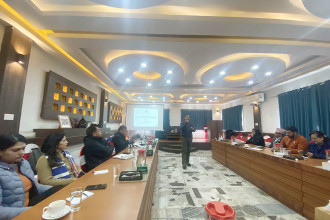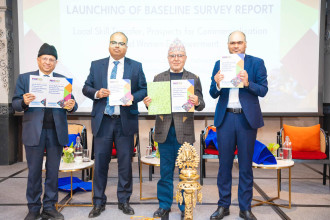-1737691566.jpg)
KATHMANDU: Federation of Nepalese Chambers of Commerce and Industry (FNCCI) President Chandra Prasad Dhakal has urged that the contributions collected in the Social Security Fund (SSF) be invested in productive sectors. He said such investment would contribute to the country’s development.
Addressing the eighth anniversary ceremony of Social Security Fund in Singha Durbar on Thursday, Dhakal said the SSF’s resources should be utilised in a safe, sustainable and result‑oriented manner. “Such institutional funds are usually kept in fixed deposits of banks in Nepal. There is data that Rs 95.68 billion in contributions has been collected in the SSF so far. If this amount can be invested in productive sectors, it will contribute to the development of the country,” he said.
He remarked that with the implementation of the Labour Act, 2084 and the contribution‑based Social Security Act, 2074, the social security system has advanced institutionally. He said the SSF is helping to expand the formal labour market, create safe and dignified workplaces, and strengthen tripartite collaboration.
Dhakal suggested the SSF should take initiatives in the coming years to expand digital services, reduce implementation burden on micro, small and medium enterprises, while incorporating them into the SSF. He suggested bringing informal and self‑employed workers into the system. The FNCCI president also stressed the need to prioritise industry‑ and business‑friendly facilities and modernisation of the system in line with international labour standards.
He added that, because ambiguity remains over contribution rates, registration processes and liabilities, effective publicity is necessary; workers’ perception that they receive direct benefits from their contributions should be enhanced; and the SSF’s investment structure must be transparent, secure and supported by risk management.
Mentioning that FNCCI is always ready to support worker welfare, a safe working environment and sustainable economic development, Dhakal said FNCCI would continue to contribute institutionally to make Nepal’s labour market formal, safe and sustainable.





